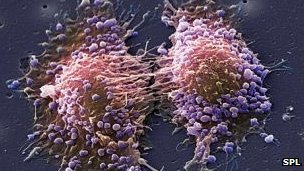Being cheerful may protect against heart problems, say US experts.
Happy, optimistic people have a lower risk of heart disease and stroke, a Harvard School of Public Health review of more than 200 studies – reported in Psychological Bulletin – suggests.
While such people may be generally healthier, scientists think a sense of well-being may lower risk factors such as high blood pressure and cholesterol.
Stress and depression have already been linked to heart disease.
The researcher from the Harvard School of Public Health trawled medical trial databases to find studies that had recorded psychological well-being and cardiovascular health.
This revealed that factors such as optimism, life satisfaction, and happiness appeared to be linked associated with a reduced risk of heart and circulatory diseases, regardless of a person’s age, socio-economic status, smoking status or body weight.
Disease risk was 50% lower among the most optimistic individuals.
Not Proof
Dr Julia Boehm and colleagues stress that their work only suggests a link and is not proof that well-being buffers against heart disease.
And not only is it difficult to objectively measure well-being, other heart risk factors like cholesterol and diabetes are more important when it comes to reducing disease.
The people in the study who were more optimistic also engaged in healthier behaviours such as getting more exercising and eating a balanced diet, which will have some influence.
But even when they controlled for these factors and others, like sleep quality, the link between optimism and better heart health remained.
Although they looked at 200 studies, the researchers say this number is still not enough to draw firm conclusions and recommend more research.
Much of the past work on mood and heart disease has looked at stress and anxiety rather than happiness.
Maureen Talbot, senior cardiac nurse at the British Heart Foundation, said: “The association between heart disease and mental health is very complex and still not fully understood.
“Although this study didn’t look at the effects of stress, it does confirm what we already know which is psychological well-being is an important part of a healthy lifestyle, just like staying active and eating healthily. It also highlights the need for healthcare professionals to provide a holistic approach to care, taking into account the state of someone’s mental health and monitoring its effect on their physical health.”
Source: BBC News UK














